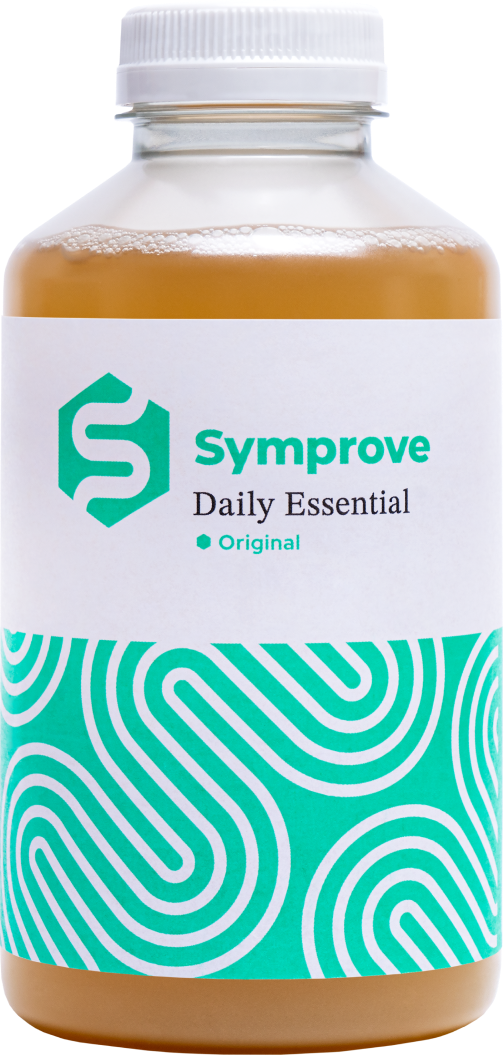The Low FODMAP Diet (LFD) is a common approach which restricts certain foods containing short-chain carbohydrates as a management tool in patients with IBS.(1) Research shows that the LFD can improve symptoms in 50-80% of patients with IBS when followed with the support of a suitably-trained dietitian.(2,3) However, due to the increasing prevalence of IBS(4) and insufficient dietetic resources, many IBS patients are receiving inadequate nutrition information on the LFD.(5) Additionally, some patients choose to self administer the LFD based on their own background research. This can result in both short- and long-term health effects for the patient, some of which we will explore below.
What is the low FODMAP diet?
FODMAPs are poorly absorbed short-chain carbohydrates which are fermented in the large intestine by gut bacteria.(6) The term FODMAP stands for:
- Fermentable
- Oligosaccharides (e.g. fructans and galacto-oligosaccharides (GOS))
- Disaccharides (e.g. lactose)
- Monosaccharides (e.g. fructose)
- And
- Polyols (e.g. sorbitol, mannitol, xylitol and maltitol)
The LFD is a three-phase dietary process which helps patients to identify dietary triggers and to move forward with a personalised diet which eliminates or reduces IBS symptoms in the long-term. Phase one is a short-term exclusion diet which eliminates FODMAP-containing foods for two to six weeks. It is recommended that this phase should not last for more than six weeks, with the majority of people achieving symptom improvement within four weeks.(7)
Phase two is a staged re-introductory process, whereby FODMAP-containing foods are gradually introduced back into the diet as “challenge foods”. This helps patients to identify sensitivities to individual FODMAP subgroups. Once FODMAP “challenges” are completed and dietary triggers are identified, the patient enters into phase three. This is where dietary restrictions are loosened and the patient is encouraged to implement a personalised FODMAP diet which increases dietary variety and balance whilst maintaining IBS symptom control.(8)
As mentioned earlier, some IBS patients do not follow the LFD diet correctly, and thus remain on the strict FODMAP exclusion stage (phase one) beyond the recommended two to six weeks.(9,10) This can result in a very limited diet, which lacks variety and consequently puts a patient at risk of nutritional deficiencies.(11) Additionally, long-term adherence to a LFD can have an adverse impact on the balance and diversity of the gut microbiome,(12) which could have an impact on longer-term health.
The low FODMAP diet and the gut microbiome
Prebiotics are non-digestible substrates which are selectively utilised by host microorganisms to confer health benefits.(13) They have positive effects on the gut microbiome such as favouring the growth of beneficial bacteria (Bifidobacteria), and increasing the production of beneficial short-chain fatty acids (SCFAs) (e.g. butyrate).(14) Although effective for reducing symptoms of IBS, the LFD reduces our dietary intake of prebiotics (fructans and GOS) by up to 50%.(15) This may cause short-term, and possibly long-term changes to the gut microbiome.
Short-term effects
The exclusion of dietary FODMAPs has indeed been shown to change the gut microbiome,(16) in as little as three or four weeks.(17) Small clinical trials(18-20) have shown reductions in faecal Bifidobacterium levels during the exclusion phase of the LFD, with some reversal following reintroduction of prebiotics or through probiotic supplementation. Additionally, a small RCT (2017)(21) reported reduced faecal bacteria levels of Actinobacteria and Faecalibacterium prausnitzii (butyrate-producing bacteria) after three weeks of FODMAP restriction. After this period, ten days of prebiotic supplementation (fructo-oligosaccharides) restored these bacteria. A larger systematic review examining the effects of the LFD on the gut microbiome also found decreased Bifidobacterium, butyrate-producing bacteria, prebiotic bacteria, and mucus-associated bacterium in all seven studies reviewed.(22)
Long-term effects
Changes in the gut microbiome could be associated with various health conditions. For example, low Bifidobacterium has been associated with conditions such as coeliac disease,(23) depression(24) allergic asthma and dermatitis.(25) Additionally, alterations in SCFAs due to prolonged dietary restriction could impact epithelial barrier function and increase risk of colorectal cancer.(26) However, most studies on the LFD and the microbiome have only examined short-term changes during the strict exclusion phase.(27) More research is needed to determine if there are long-term changes in the gut microbiome as a result of following the LFD during all three phases of the diet.
Considerations for clinical practice
Patients who self administer the LFD and/or receive inadequate dietary guidance are at risk of remaining on the LFD for longer than recommended. This could lead to short- and long-term adverse effects on the gut microbiome. Patients should be educated about the effects of the LFD on the gut microbiome and discouraged from following the initial restriction stage (phase one) for more than six weeks. They should be given suitable dietetic support when following the three-phase LFD protocol, which includes advice on the phased re-introduction of foods containing beneficial prebiotics. Consuming a diverse diet which includes a variety of prebiotic foods is essential for maintaining a healthy gut microbiome.
References
[1] Varjú P, Farkas N, Hegyi P, et al. Low fermentable oligosaccharides, disaccharides, monosaccharides and polyols (FODMAP) diet improves symptoms in adults suffering from irritable bowel syndrome (IBS) compared to standard IBS diet: A meta-analysis of clinical studies. PLoS One. 2017;12(8):e0182942.
[2] Krogsgaard LR, Lyngesen M, Bytzer P. Systematic review: quality of trials on the symptomatic effects of the low FODMAP diet for irritable bowel syndrome. Aliment Pharmacol Ther. 2017;45(12):1506-1513.
[3] Dionne J, Ford AC, Yuan Y, et al. A Systematic Review and Meta-Analysis Evaluating the Efficacy of a Gluten-Free Diet and a Low FODMAPs Diet in Treating Symptoms of Irritable Bowel Syndrome. Am J Gastroenterol. 2018;113(9):1290-1300.
[4] Black C, Ford A. Global burden of irritable bowel syndrome: trends, predictions and risk factors. Nat Rev Gastroenterol Hepatol (2020).
[5] Trott N, Aziz I, Rej A, Surendran Sanders D. How Patients with IBS Use Low FODMAP Dietary Information Provided by General Practitioners and Gastroenterologists: A Qualitative Study. Nutrients. 2019;11(6):1313.
[6] Gibson PR. History of the low FODMAP diet. J Gastroenterol Hepatol. 2017;32 Suppl 1:5-7.
[7] Gibson PR, Shepherd SJ. Evidence-based dietary management of functional gastrointestinal symptoms: The FODMAP approach. J Gastroenterol Hepatol. 2010;25(2):252-258.
[8] Whelan K, Martin LD, Staudacher HM, Lomer MCE. The low FODMAP diet in the management of irritable bowel syndrome: an evidence-based review of FODMAP restriction, reintroduction and personalisation in clinical practice. J Hum Nutr Diet. 2018;31(2):239-255.
[9] Lomer MC. Review article: the aetiology, diagnosis, mechanisms and clinical evidence for food intolerance. Aliment Pharmacol Ther. 2015;41(3):262-275.
[10] McKenzie YA, Bowyer RK, Leach H, et al. British Dietetic Association systematic review and evidence-based practice guidelines for the dietary management of irritable bowel syndrome in adults (2016 update). J Hum Nutr Diet. 2016;29(5):549-575.
[11] Staudacher HM, Ralph FSE, Irving PM, Whelan K, Lomer MCE. Nutrient Intake, Diet Quality, and Diet Diversity in Irritable Bowel Syndrome and the Impact of the Low FODMAP Diet. J Acad Nutr Diet. 2020;120(4):535-547.
[12] Zannini E, Arendt EK. Low FODMAPs and gluten-free foods for irritable bowel syndrome treatment: Lights and shadows. Food Res Int. 2018;110:33-41.
[13] Davani-Davari D, Negahdaripour M, Karimzadeh I, et al. Prebiotics: Definition, Types, Sources, Mechanisms, and Clinical Applications. Foods. 2019;8(3):92.
[14] Bourassa MW, Alim I, Bultman SJ, Ratan RR. Butyrate, neuroepigenetics and the gut microbiome: Can a high fiber diet improve brain health?. Neurosci Lett. 2016;625:56-63.
[15] Böhn L, Störsrud S, Liljebo T, et al. Diet low in FODMAPs reduces symptoms of irritable bowel syndrome as well as traditional dietary advice: a randomized controlled trial. Gastroenterology. 2015;149(6):1399-1407.e2.
[16] Lui J, Chey W, Haller E, Eswaren S. Low-FODMAP Diet for Irritable Bowel Syndrome: What We Know and What We Have Yet to Learn .Annual Review of Medicine 2020 71:1, 303-314
[17] Staudacher HM, Lomer MC, Anderson JL, et al. Fermentable carbohydrate restriction reduces luminal bifidobacteria and gastrointestinal symptoms in patients with irritable bowel syndrome. J Nutr. 2012;142(8):1510-1518. doi:10.3945/jn.112.15928
[18] McIntosh K, Reed DE, Schneider T, et al. FODMAPs alter symptoms and the metabolome of patients with IBS: a randomised controlled trial [published correction appears in Gut. 2019 Jul;68(7):1342]. Gut. 2017;66(7):1241-1251.
[19] Bennet SMP, Böhn L, Störsrud S, et al.Multivariate modelling of faecal bacterial profiles of patients with IBS predicts responsiveness to a diet low in FODMAPs.Gut 2018;67:872-881.
[20] Staudacher HM, Lomer MCE, Farquharson FM, et al. A Diet Low in FODMAPs Reduces Symptoms in Patients With Irritable Bowel Syndrome and A Probiotic Restores Bifidobacterium Species: A Randomized Controlled Trial. Gastroenterology. 2017;153(4):936-947
[21] Cox S, Stagg A, Fromentin S, et al.ADWE-09 Low fodmap diet improves functional-like gastrointestinal symptoms but reduces bifidobacteria in quiescent inflammatory bowel diseaseGut 2018;67:A165.
[22] Han S, Ya-Ting L, Heitkemper M. et al. Effects of Low-FODMAPS Diet on Irritable Bowel Syndrome Symptoms and Gut Microbiome, Gastroenterology Nursing. 2019.March/April 2 – Volume 42 – Issue 2 – p 150-158
[23] Collado MC, Donat E, Ribes-Koninckx C, Calabuig M, Sanz Y. Imbalances in faecal and duodenal Bifidobacterium species composition in active and non-active coeliac disease. BMC Microbiol. 2008;8:232.
[24] Aizawa E, Tsuji H, Asahara T, et al. Possible association of Bifidobacterium and Lactobacillus in the gut microbiota of patients with major depressive disorder. J Affect Disord. 2016;202:254-257.
[25] Akay HK, Bahar Tokman H, Hatipoglu N, et al. The relationship between bifidobacteria and allergic asthma and/or allergic dermatitis: a prospective study of 0-3 years-old children in Turkey. Anaerobe. 2014;28:98-103.
[26] Staudacher HM, Whelan K. The low FODMAP diet: recent advances in understanding its mechanisms and efficacy in IBS. Gut. 2017;66(8):1517-1527.
[27] Hill P, Muir JG, Gibson PR. Controversies and Recent Developments of the Low-FODMAP Diet. Gastroenterol Hepatol (N Y). 2017;13(1):36-45.



